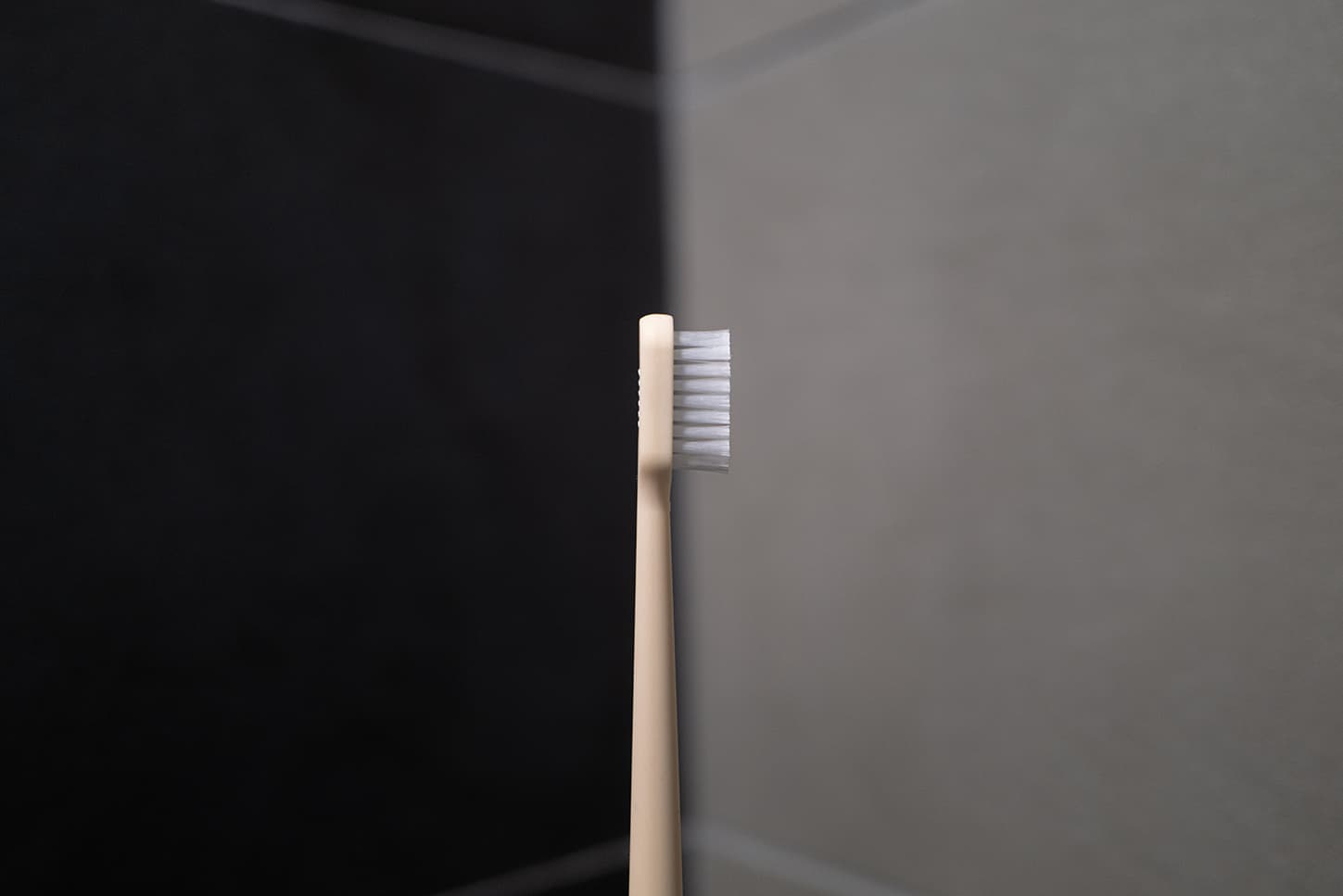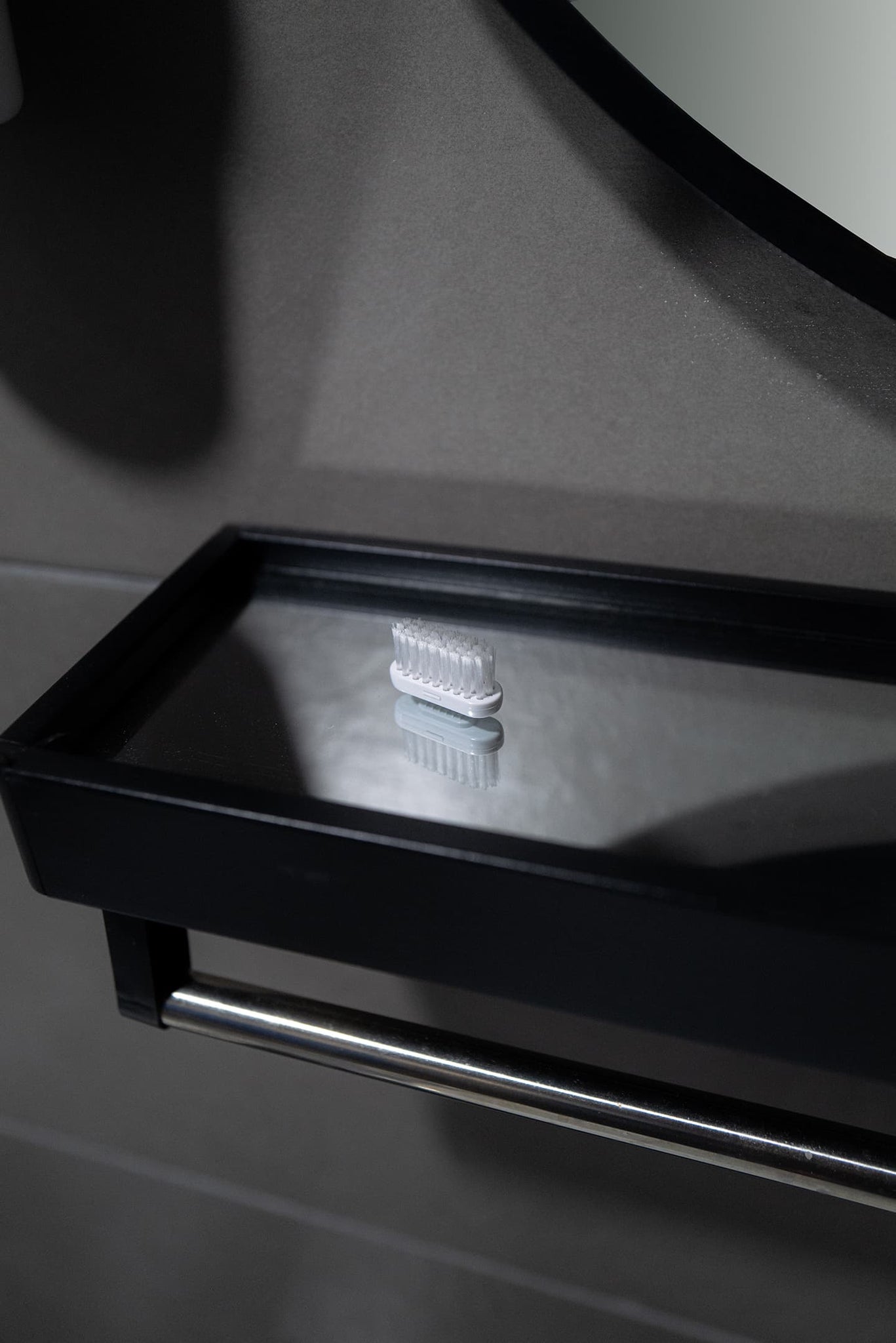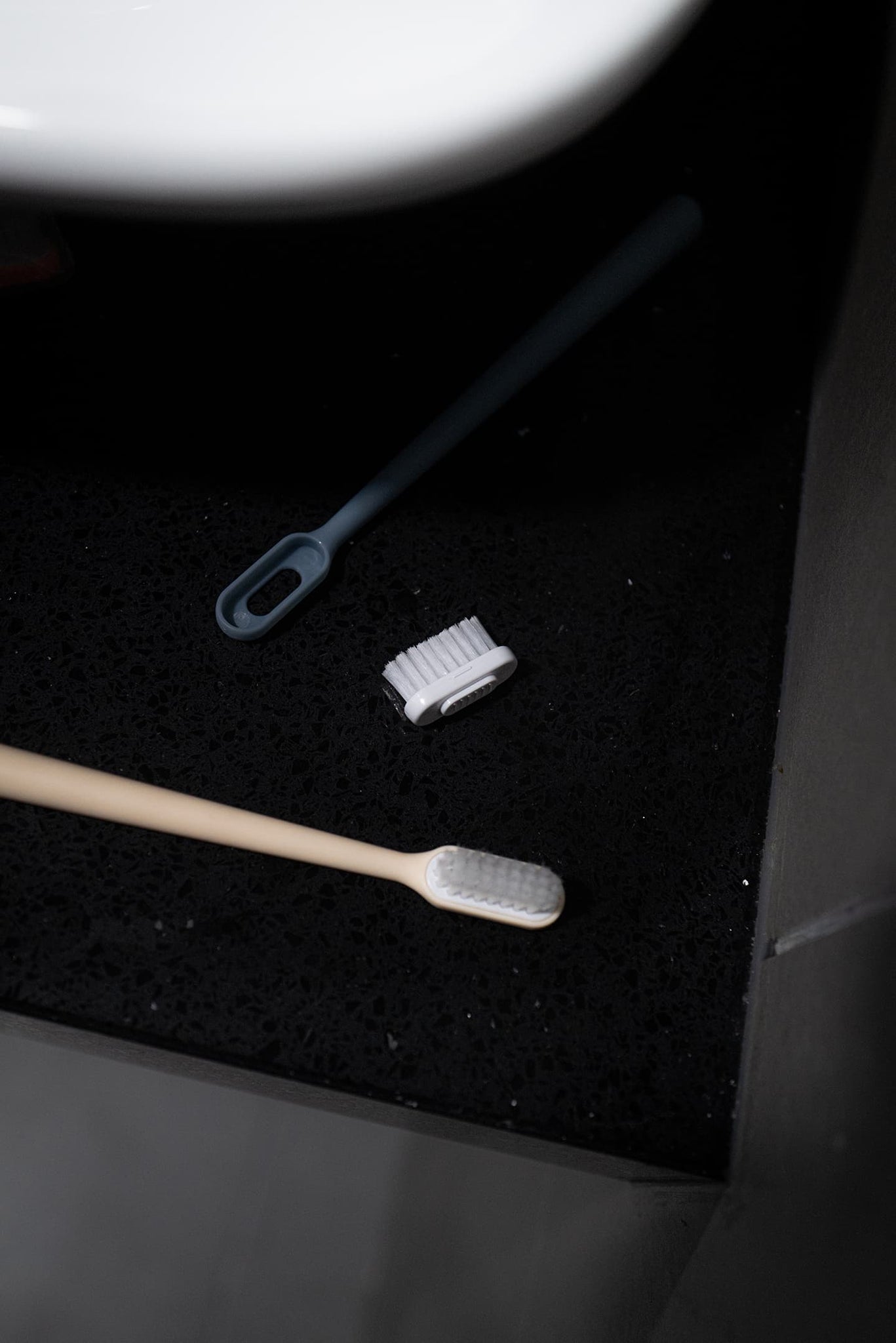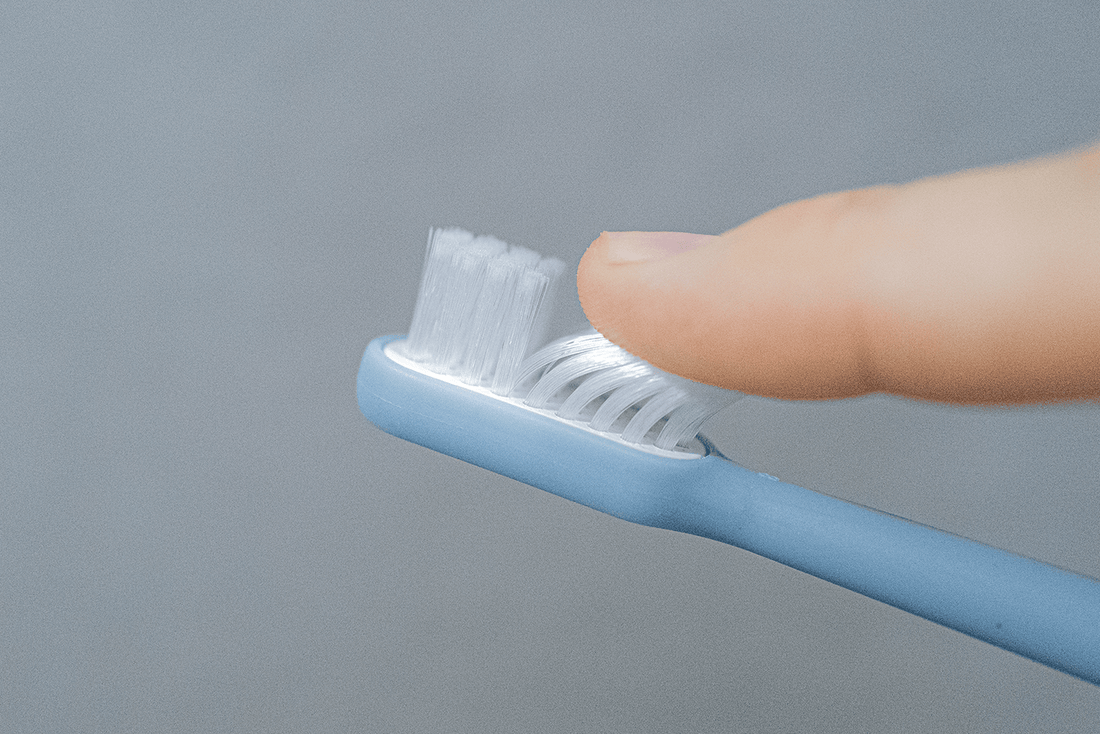Finding the right toothbrush can be a daunting task. With so many options available, it's easy to get overwhelmed and unsure of which one is best for you.
Should you choose a soft bristle brush or go for something with a bit more firmness? Are natural or synthetic bristles the way to go? And what about those rechargeable toothbrushes everyone seems to be raving about?
Grab your favorite toothpaste and get ready to brush up on your toothbrush knowledge. Today, we discuss the pros and cons of both soft and hard toothbrushes so you can make an informed decision about which one is best for you.
Toothbrush Bristle Types
Toothbrush bristle types play a crucial role in maintaining oral health. When it comes to soft versus hard bristles, there are some key differences to consider.
Soft bristles have become increasingly popular due to their gentle nature and ability to protect sensitive gums from damage. They offer a more comfortable brushing experience without sacrificing effectiveness.
On the other hand, hard bristles can be beneficial for those who prefer a firmer brush or need extra cleaning power. They can effectively remove plaque and debris from teeth surfaces, providing a thorough clean. However, it's important to use hard bristles with caution as they may cause gum irritation or enamel abrasion if used improperly.

Choose a Soft Toothbrush
The safer choice is that we should all use a soft toothbrush or soft bristles.
The reason is that many people believe that hard bristles can harm tooth enamel. While they can indeed cause damage, the real culprit for weakened enamel is actually sugary and acidic foods such as soda pop, fruit juice, or candy.
Using a hard-bristled toothbrush may not be the best choice for your gums either. The truth is, most people brush too hard and this can lead to damage to sensitive gum tissue, especially around the gumline.
So stick to a soft-bristled toothbrush and save the hard-bristled brushes for cleaning around the house or scrubbing your bicycle chain, but keep them away from your mouth!
What Hard Bristles Do
Hard bristles have a more abrasive texture compared to their softer counterparts. This can be beneficial in removing stubborn plaque and stains from the teeth. The rougher texture allows for a deeper clean, reaching those hard-to-reach areas between teeth and along the gumline.
It's important to note that while hard bristles can provide a thorough cleaning, they may not be suitable for everyone. Individuals with sensitive gums or enamel erosion should avoid using hard bristled toothbrushes as they can further irritate the gums and cause damage to already weakened enamel.
If you do choose to use a toothbrush with harder bristles, it's crucial to maintain proper brushing technique. Apply gentle pressure when brushing, making sure not to scrub too aggressively as this can lead to gum recession or enamel wear.
Remember that finding the right toothbrush is essential for maintaining good oral hygiene. It's always best to consult with your dentist or dental hygienist who can provide personalized recommendations based on your specific needs and preferences

Natural or Synthetic Bristles?
Toothbrushes come with either natural or synthetic bristles. Natural bristles are typically made from castor oil. On the other hand, synthetic bristles are made from nylon.
Both types of bristles can effectively clean your teeth and gums. However, there are a few differences worth noting.
One advantage of natural bristles is their softness. They tend to be gentler on the gums and can be a good option for those with sensitive gums or prone to gum recession. Additionally, natural bristle brushes are often considered more eco-friendly and sustainable since they break down more easily in landfills compared to their synthetic counterparts.
Synthetic bristles, on the other hand, tend to be firmer and more durable than natural ones. This can make them better suited for removing plaque and stains from teeth surfaces. They also dry faster after use, which helps prevent bacterial growth on the brush head.

Go eco. Opt for a rechargeable toothbrush
If sustainability is important to you, consider opting for an eco-friendly option such as a toothbrush made from recycled materials or one that is biodegradable or even better, both up-cycled AND recyclable. We recommend SeaDifferently pair with its rechargeable soft castor oil bristles.
Finding the right toothbrush recommendation involves considering factors such as sensitivity of gums, preference for soft or hard bristles, eco-friendliness/sustainability concerns,and need for extra cleaning power.
Of course, the best choice will vary from person to person based on individual dental needs and personal preference so take into account all these aspects before making your decision in order ain healthy oral hygiene habits!

